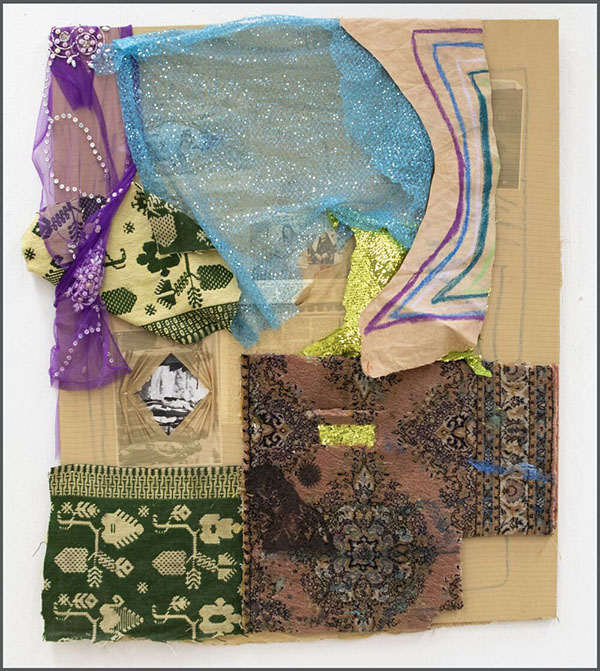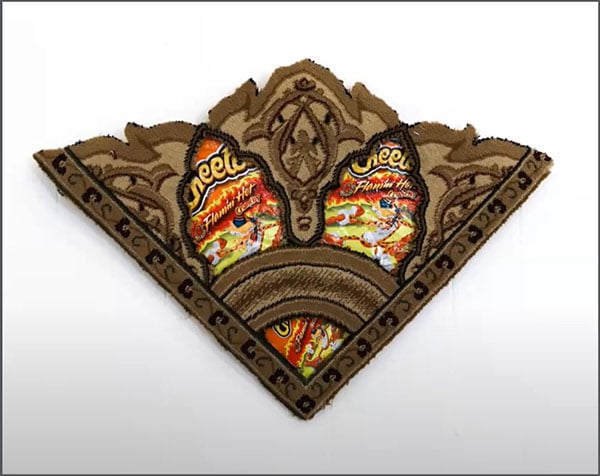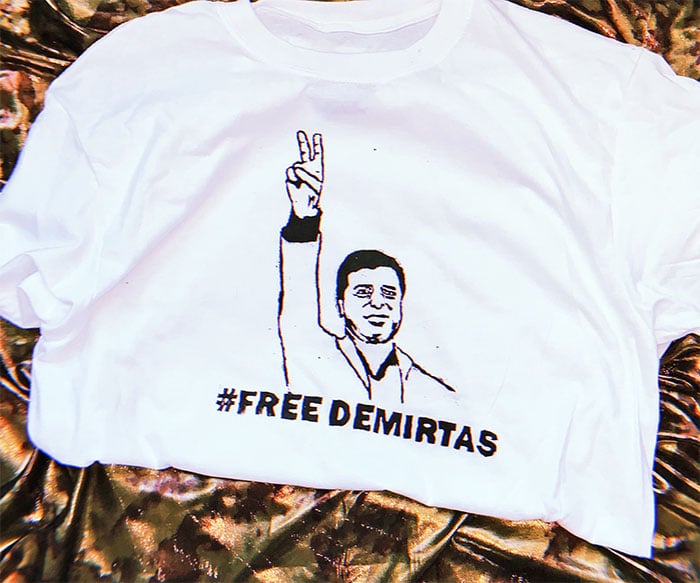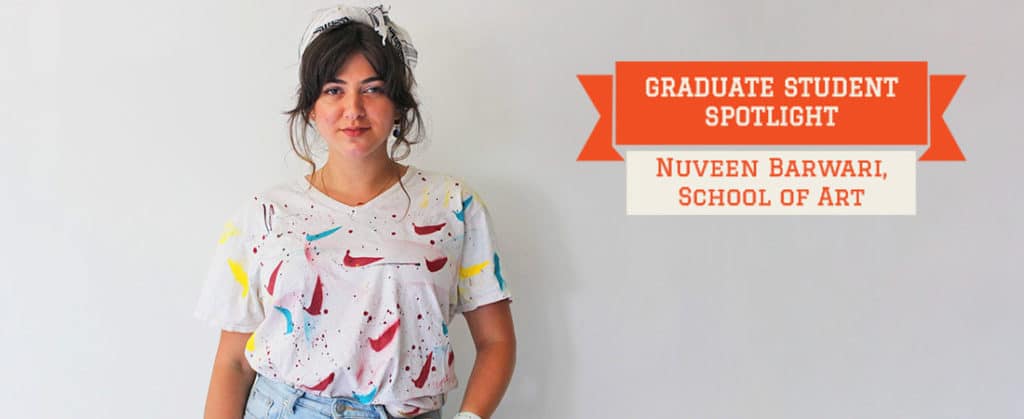Space is defined as the unlimited expanse in which all material objects are located, and all events occur. Artists and designers often explore the concept of space by creating something special and unique where people feel that they belong. Nuveen M. Barwari, graduate student in the School of Art, is using her work to create an entirely new space—one that allows her to connect her homeland and her host land.
Barwari’s family was part of the first wave of Kurdish immigrants to Nashville in the 1970s, after the fall of the Kurdish rebellion against Saddam Hussein and the Iraqi government. From an early age, she recognized that her heritage and family history made her different from her peers. “I often think back to the time when I told my classmates that my middle initial stood for Madison,” Barwari revealed. “It actually stands for Muhammad, but I was trying to fit in.”
Although born in Nashville, Barwari spent her youth growing up in both Middle Tennessee and Kurdistan, never really feeling like she completely belonged in either location. “I don’t entirely live in America, but I also don’t live in Kurdistan. So where do I live?” Barwari mused. To answer this question, Barwari’s art creates a fictive space that connects Kurdistan and America, combining traits of each while never fully residing in either.

Nuveen M. Barwari, Blueprint
Much of her artwork utilizes collage, which is the creation of art combining different materials such as photographs and pieces of paper or fabric. “Through collage, I am able to deconstruct and reconstruct materials that I have collected to create something new,” Barwari noted. “But this new object wouldn’t exist without the merging of these materials, just like the new space created between the homeland and the host land isn’t completely separate from the two.”
Most of the rugs Barwari uses have been collected from the Kurdish community and have been mass-produced by machine. The results are software-generated designs that are completely symmetrical, which contrasts with the beautifully imperfect patterns of handcrafted rugs. By cutting and manipulating these textiles, Barwari is, in essence, able to impart an aspect of handcrafting into the manufactured fabric or textile.

Nuveen M. Barwari, Flaming Hot
Barwari’s work with collage mixes media and textiles that connect multiple aspects of her life and heritage. She experiments with the contrast between the mass-produced pieces of America’s commodity culture with the handmade weaving done by traditional Kurdish artisans, using traditional fabrics and rugs, combined with denim, cotton, and junk food wrappers to create entirely new objects.
Her art installations also create a physical space where the public can participate actively. She often invites the community to engage with her art through poetry, dance, and song. In this way, she seeks to mimic the bazaars and markets of her homeland, which were not only places of commerce, but also places of celebration, conversation, and even protest.
Protest and rebellion play a large role in Barwari’s artwork. The Kurdish people currently live under a threat of almost constant violence from oppressive governments. Occupation of Kurdistan by Turkey, Iraq, Iran, and Syria has divided Kurdish ethnic communities and led to genocide and ethnic cleansing.
Barwari’s art also seeks to elevate the voices of past and present Kurdish freedom fighters. She uses images of Kurdish journalists, politicians, and activists that have been imprisoned or executed for their beliefs. She even incorporates copies of newspaper articles that illustrate the violence occurring in her homeland. By doing so, she is able to shine a light on the atrocities committed against her people.

This t-shirt features an image of Selahattin Demirtaş, a political hostage that has been imprisoned in Turkey since 2016.
That effort has even inspired her to expand her art into the world of fashion, which she considers an alternative technique for displaying her designs. “Often the art that I create cannot exist on the wall of galleries alone, it needs to be worn,” Barwari emphasized. “Like a political poster, it needs to confront different people in different spaces.” Barwari’s online store carries apparel and art that have been sold worldwide. In this way, Barwari is continuing the legacy of resistance rooted in the Kurdish art community.
Above all else, Barwari hopes that her art installations will create a space for discussion “I hope that my work is able to spark conversations,” Barwari said. “I want people to understand the importance of collecting, archiving and preserving to avoid the erasure of the ethnic communities that inhabit those regions.”
